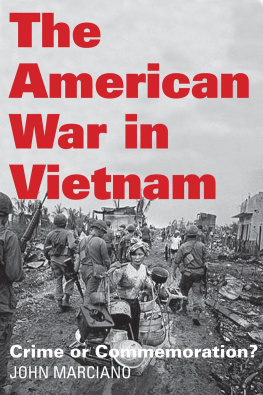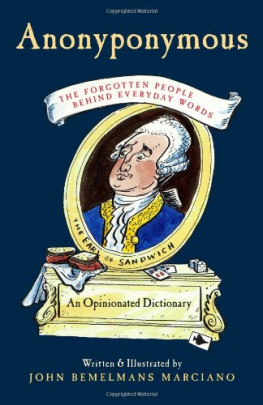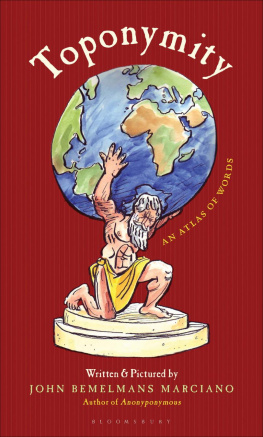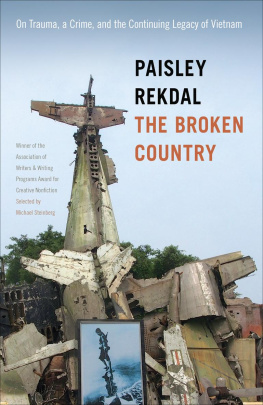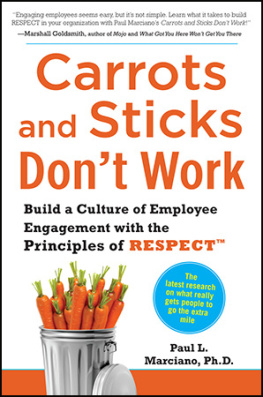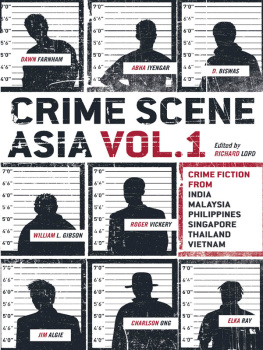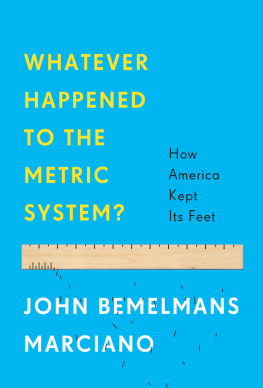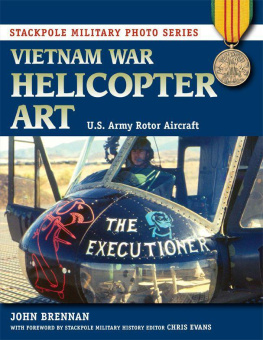Copyright 2016 by John Marciano
All Rights Reserved
Library of Congress Cataloging-in-Publication Data:
Name: Marciano, J. D., author.
Title: The American war in Vietnam : crime or commemoration? / by John Marciano.
Description: New York : Monthly Review Press, [2016] | Includes bibliographical references and index.
Identifiers: LCCN 2016017663| ISBN 9781583675854 (pbk.) | ISBN 9781583675861
(hardcover) | ISBN 9781583675878 (e-book trade) | ISBN 9781583675885 (e-book institution)
Subjects: LCSH: Vietnam War, 1961-1975--United States. | Vietnam War, 1961-1975--Moral and ethical aspects. | MemorializationPolitical aspectsUnited States.
Classification: LCC DS558 .M354 2016 | DDC 959.704/3373dc23
LC record available at https://lccn.loc.gov/2016017663
Typeset in Minion Pro
Monthly Review Press, New York
monthlyreview.org
5 4 3 2 1
Acknowledgments
Some years ago, my late SUNY Cortland colleague Bill Griffen and I planned to update our critical examination of the American War in Vietnam and its treatment in secondary history texts (Teaching the Vietnam War, 1979). It was not to be, however, because of his death in February 2007 from prostate cancer. I labored on this book, therefore, in the spirit of our loving intellectual and political comradeship. Bill had retired in 2006 after fifty-one years of teaching as the longest-serving professor in the history of the State University of New York.
A special thanks goes to my first and toughest reader, Jeff Cooper, for his long and patient, no-nonsense review and suggestions. I also wish to thank Bill Ehrhart, Marilyn Young, Fred Wilcox, and Jeremy Kuzmarov for their careful reading of the entire work, and Noam Chomsky for somehow finding the time to read the final chapter. Thanks also go to Philip Bennett, Carl Mirra, Edward Morgan, Jim OBrien, and John Ryder for comments on the original proposal and individual sections; Joe Montuori, for his invaluable help on secondary history textbooks; Judy Griffen, Bills widow, for her steadfast support; my wife, Leslie Dwyer, who stayed the course with me over the two years of work and kept asking, Whos your audience?; Michael Yates of MR Press for his editorial assistance and belief in this project; and Erin Claremont for her excellent copy editing.
I trust that all those above will find this work worthy of their efforts.
INTRODUCTION
The Commemoration Story
I n May 2012, President Barack Obama and the Pentagon announced a Commemoration of the Vietnam War to continue through 2025, the fiftieth anniversary of the conflicts end. Among the Commemorations objectives, three stand out: To thank and honor veterans of the war and their families, including those who were held as prisoners of war or listed as missing in action for their service and sacrifice on behalf of the United States; to highlight the advances in technology, science, and medicine related to military research conducted during the war; and to recognize the contributions and sacrifices made by the allies. The Commemoration will sponsor thousands of activities over the next ten years, including concerts, educational curricula, school visits by veterans, symposia, school projects, memorial festivities, and POW/MIA ceremonies.
Also that May, Obama gave a Commemoration speech at the Vietnam War Memorial in Washington. He urged the nation to honor veterans who foughtan implicit call to honor the cause for which they fought, and to deter challenges to the official story. The American war in Vietnam remains one of the most painful chapters in our history most particularly, how we treated our troops who served there. You were sometimes blamed for misdeeds of a few when the honorable service of the many should have been praised. Was he thinking of the My Lai massacre? You came home and sometimes were denigrated, when you should have been celebrated. It was a national shame, a disgrace that should have never happened.
The Commemoration is another chance to set the record straight. Obama emphasized the POW issue, as he praised those who wrote one of the most extraordinary stories of bravery and integrity in the annals of military history. In a criticism of the antiwar movement, he cited the need to tell the story of how some Americans turned their back on you. In a brief sentence, he urged Americans to never forget the costs of war, including the terrible loss of innocent civiliansnot just in Vietnam. He erased from history, however, the millions of Vietnamese who were killed, maimed, and became refugees.
Obama claimed that Americans hate war. When we fight, we do so to protect ourselves because its necessary. Although acknowledging the deep divisions the conflict produced at home, he asserted that in our democracy we can debate and disagreeeven in a time of war. Patriots can support a war; patriots can oppose a war. Regardless of our powerful differences, however, we must always stand united in support of our troops. Like many presidents before him, Obama closed his speech by calling upon God to bless our men and women in uniform [and] these United States of America.
The Commemoration objectives and Obamas speech reveal the official story that will be taught about the American war in Vietnamand will be challenged in this book. This official story has many lessons.
The most fundamental lesson is that the war in Vietnam was fought on behalf of the ideals we hold dear as Americans. Obama and the Vietnam Commemoration embrace the view put forth by President Ronald Reagan in 1980: It is time we recognized that ours, in truth, was a Noble Cause.
According to Obama and the Vietnam Commemoration Commission, the war was honorable. Therefore, it follows that those who fought it deserve citizens respect and support. This raises some profound questions: Can a war be honorable if, as will be argued here, it was a violation of international law, a criminal act of aggression? If so, can the warrior be separated from the war, and act with honor in a criminal cause?
Since more than sixteen hundred servicemen are still Missing in Action (MIA), the Vietnamese should provide us with the fullest possible accounting for those who have not returned, Obama said. Thus, he extended the POW/MIA myth that has been sustained in the United States for decades.
This was one of the most painful chapters in our history, Obama continued, a reminder that the focus of the Commemoration will be on what the war did to Americans, not to the Vietnamese, who suffered staggering human and ecological losses.
Those who served in the war were not well treated when they returned home, an attack on Americans who opposed the conflict: this reopens the widely believed myth that antiwar activists spit on and generally mistreated returning veterans. Although deep divisions arose over the conflict, Americans are a family who can support or oppose a war while standing united in supporting those who fought. The presidents claim, however, rewrites the actual history of that period. Patriot was not the word of choice for U.S. officials to describe those who dissented from their policiesincluding antiwar activists in the military


